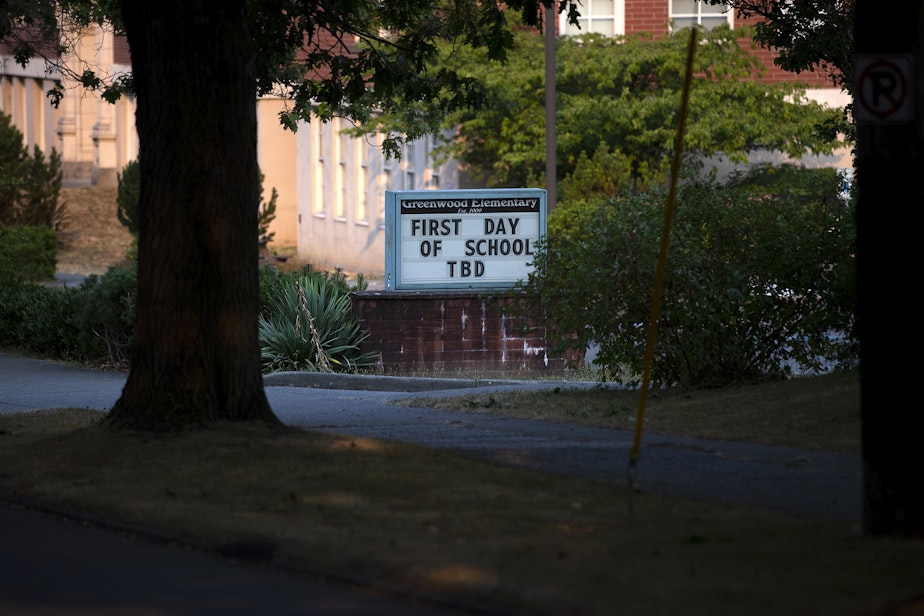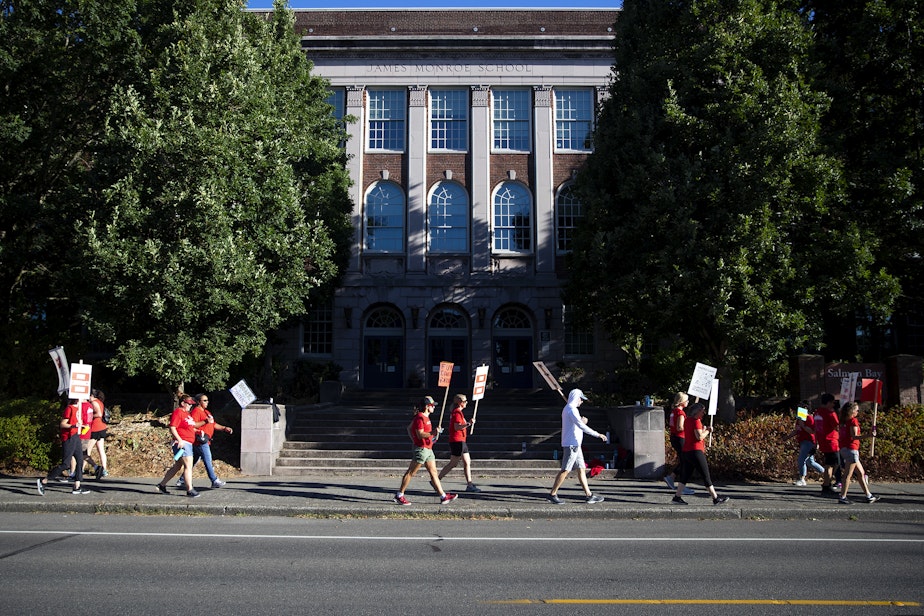Unpacking the complexities of teacher strikes

Tens of thousands of Seattle students are getting an extended summer break after Seattle Public Schools educators went on strike Wednesday.
It’s the latest in a long line of school interruptions since the beginning of the pandemic, from school closures and remote learning to school bus shortages.
Instead of going back to the classroom this week, more than 50,000 Seattle Public School students were informed Tuesday that the start of school would be delayed because teachers were on strike.
Along with salary, one of the main focuses of the contract negotiations underway between the Seattle Education Association and the district is special education.
"The district is planning to move more special ed students into regular classrooms as opposed to pull out classes," said KUOW's David Hyde. Due to this plan, the teacher's union is looking for more support for special ed and multilingual education.
"The union is saying they want to make sure that the support is there so that there are still enough special ed teachers supporting those kids in the regular classrooms," Hyde explained.
Seattle school teachers aren't the only ones striking this year. Kent Public Schools settled their strike late Wednesday night and students are back in class today. In Pierce County, Eatonville Public Schools missed their start date because of a teachers strike.

All of these strikes are happening amid the backdrop of the pandemic, one that brought remote learning and then tentative returns to the classroom. There have been high levels of teachers feeling burnt out, many leaving the profession, and students missing class time.
According to David Knight of the University of Washington School of Education, the issues behind these strikes run deeper than just money.
"These strikes, they're often about salary," Knight said, "but at the end of the day, that's usually not why teachers were drawn into the profession, and not why they stay."
Knight spoke to Soundside about the strikes around the region and how systemic issues facing education in Washington state affect teachers.
RadioActive Youth Media youth producers Marian Mohamed, Hayden Andersen and Micah Riggio contributed to this episode.






